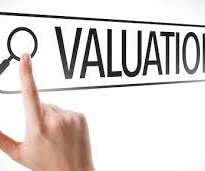Why Raising Too Much Money Can Harm Your Startup
Both Sides of the Table
JUNE 30, 2016
There is a general guideline of how much investors want to own in order to invest in your company and the norm is 15–30% with the most common range 20–25% per early stage round. A $15–20 million valuation sounds better than an $8 million valuation, doesn’t it? But it’s actually not that silly.








































Let's personalize your content